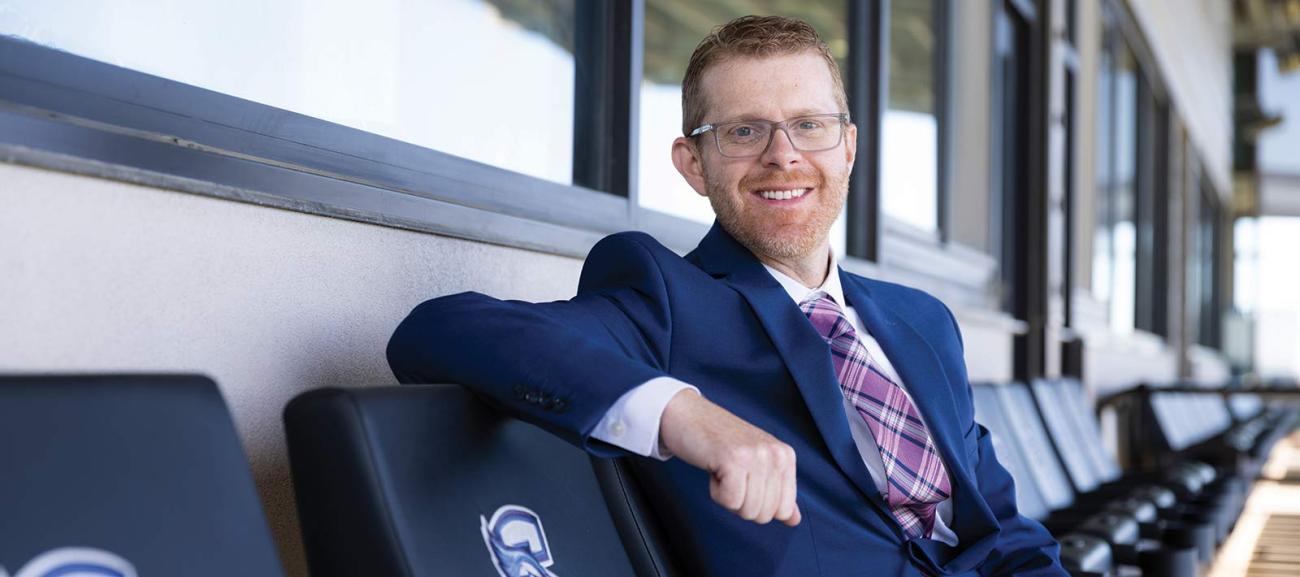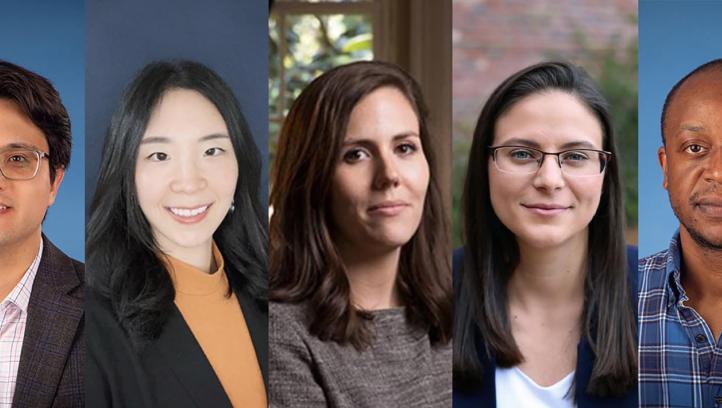
NIL course guides student-athletes through dangers, toils and snares

Name, Image and Likeness. When the U.S. Supreme Court held the NCAA in violation of antitrust law on June 21, 2021, four Creighton professors saw emerging a new and more complicated world of student-athlete remuneration.
So, they created a four-module course titled Seminar in Business: NIL Issues for Student-Athletes. The course is designed to guide student-athletes through the potential pitfalls of a new world in which large amounts of money potentially could come their way.
David Weber, JD, professor in the School of Law, (pictured above) teaches legal issues. Personal branding is taught by Tim McMahon, PhD, associate professor of practice. The basics of running a small business are addressed by Tim Bastian, instructor in economics and finance; while financial planning is taught by Kenny Washer, DBA, professor of economics and finance.
The court’s decision itself, Weber says, was not particularly revolutionary, merely blocking on antitrust grounds the NCAA’s cap on education-related benefits. But the NCAA saw that broader rulings on the commercial use of athletes’ names, images and likenesses were just a matter of time, so the governing body of collegiate sports wrote new rules.
The Seminar in Business course responds to that new world.
“We are trying to give some financial tools to these student-athletes so that when they do get an NIL deal, they are doing everything necessary to put themselves on the best financial and legal footing going forward,” Weber says.
Though the course is currently available only to student-athletes, Weber says he hopes it will eventually be made available to the whole student body.
“I think a lot of students would be interested in this,” he says. “Even if they are not student-athletes, I think there is a high amount of interest about, well, what is NIL? We hear about it on the news, but we don’t really know. We hear about this Supreme Court decision, but we don’t really understand it.
“So, I think this could be a foundation for a very successful course widely available to other students.”












